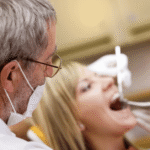When people search for bypass surgeons, they are often looking for detailed information about who these specialists are, what they do, and how their expertise impacts heart health and life-saving procedures. In the first 100 words, the key answer is simple: bypass surgeons are highly trained cardiac specialists who perform operations to restore blood flow to the heart when arteries are blocked or narrowed. Their work is critical in managing heart disease, preventing complications like heart attacks, and improving a patient’s quality of life. Understanding their training, responsibilities, and patient outcomes is essential for anyone considering or learning about heart surgery.
Bypass surgery has become one of the most significant medical breakthroughs in cardiovascular care. Over the past several decades, surgeons specializing in bypass procedures have transformed the prognosis of patients with severe coronary artery disease. Their work combines technical skill, precision, and compassion, often involving high-risk cases that require not only advanced surgical expertise but also the ability to reassure patients facing a life-altering operation. In this article, we will explore in depth the role of bypass surgeons, the processes involved in coronary artery bypass grafting (CABG), their training journey, how patients prepare and recover, and the broader future of this field in medicine. To make the content engaging and structured, we will integrate examples, professional insights, and evidence of how bypass surgeons are shaping modern cardiology.
Who Are Bypass Surgeons?
Bypass surgeons are medical professionals who specialize in cardiac surgery, specifically coronary artery bypass grafting and related procedures. They typically hold advanced degrees in medicine, have completed rigorous residency programs, and undergo specialized training in cardiovascular or cardiothoracic surgery. Their work is distinct from general surgeons or even vascular surgeons because their focus is primarily the heart and major vessels connected to it. These specialists not only conduct operations but also evaluate patient conditions, collaborate with cardiologists, and design treatment plans tailored to individual risks and needs. The trust placed in bypass surgeons is immense, as patients’ survival often rests directly in their hands.
The Evolution of Bypass Surgery
The history of bypass surgery dates back to the mid-20th century, when pioneering techniques made it possible to reroute blood flow around blocked arteries. Initially, procedures were extremely risky, with limited survival rates. Over time, advancements in surgical tools, anesthesia, and postoperative care improved outcomes significantly. Today, CABG surgery is one of the most commonly performed heart operations worldwide. Surgeons now use advanced imaging, minimally invasive techniques, and robotic assistance to enhance precision and reduce recovery time. This evolution reflects both medical innovation and the continuous refinement of surgical education. As one cardiologist once remarked, “Each era of bypass surgery tells a story of hope, resilience, and the pursuit of saving lives.”
Training and Qualifications of Bypass Surgeons
Becoming a bypass surgeon requires more than a decade of education and training. The journey usually begins with an undergraduate degree in a science-related field, followed by four years of medical school. Afterward, aspiring surgeons must complete a residency in general surgery, lasting five to seven years, and then pursue a fellowship in cardiothoracic surgery, typically two to three years. Alongside clinical practice, many undergo board certification exams and engage in ongoing research to stay updated with medical advancements. This intensive process ensures they are fully prepared to handle the complexities of open-heart surgery, from delicate vessel grafting to managing unexpected complications in the operating room.
Table 1: Pathway to Becoming a Bypass Surgeon
| Stage of Training | Duration (Years) | Focus Area | Outcome Achieved |
|---|---|---|---|
| Undergraduate Degree | 4 | Biology, Chemistry, Pre-medical studies | Foundation for medical school |
| Medical School | 4 | Anatomy, Physiology, Clinical Sciences | MD or equivalent degree |
| General Surgery Residency | 5–7 | Broad surgical training | Licensed surgical practice |
| Cardiothoracic Fellowship | 2–3 | Heart and thoracic surgical specialization | Expertise in bypass and cardiac surgery |
| Board Certification & Beyond | Ongoing | Continuous learning, certification renewals | Recognition as bypass surgery specialist |
Coronary Artery Bypass Grafting (CABG) Explained
CABG is the primary procedure performed by bypass surgeons. It involves harvesting a healthy blood vessel from another part of the body, often the leg (saphenous vein), chest (internal mammary artery), or arm (radial artery), and using it to reroute blood around a blocked coronary artery. The goal is to restore proper oxygen supply to the heart muscle, reducing chest pain (angina) and preventing heart attacks. Depending on the severity of blockages, surgeons may perform single, double, triple, or quadruple bypasses. The complexity of the operation underscores the immense responsibility carried by bypass surgeons, who must maintain absolute precision in connecting grafts and ensuring steady blood flow.
Patient Evaluation Before Surgery
Before undergoing bypass surgery, patients are thoroughly evaluated to determine suitability for the operation. Surgeons review medical history, conduct physical exams, and rely heavily on diagnostic tools like angiograms, echocardiograms, and stress tests. They also consider risk factors such as diabetes, hypertension, smoking history, and overall fitness. Preoperative discussions are critical, where surgeons explain risks, potential outcomes, and expected recovery timelines. One patient once said after meeting his bypass surgeon: “The moment he explained my chances, I realized this was not just science, but an art of reassurance.” Such conversations highlight how bypass surgeons must balance medical expertise with compassionate communication.
Table 2: Key Diagnostic Tools for Bypass Surgery Evaluation
| Diagnostic Tool | Purpose | Patient Benefit |
|---|---|---|
| Angiogram | Visualizes blockages in coronary arteries | Identifies exact location and severity |
| Echocardiogram | Uses ultrasound to assess heart function | Evaluates pumping ability and valve performance |
| Stress Test | Measures heart response to exertion | Detects hidden issues under physical strain |
| CT Coronary Angiography | Non-invasive imaging of coronary vessels | Reduces need for invasive diagnostic procedures |
| Blood Tests | Monitors cholesterol, sugar levels, and clotting | Ensures safe surgical planning |
Inside the Operating Room
Bypass surgery requires meticulous coordination within the operating room. The procedure often lasts three to six hours and involves a large surgical team. An anesthesiologist ensures the patient remains stable, while the surgeon makes a chest incision to access the heart. In traditional CABG, the heart is temporarily stopped, and a heart-lung bypass machine takes over circulation. Some surgeons opt for “off-pump” surgery, where the heart continues beating during the procedure. Each graft requires precise attachment, as even minor errors can compromise blood flow. The surgeon’s technical skill, endurance, and decision-making abilities are tested at every step.
Recovery and Postoperative Care
Recovery from bypass surgery is extensive, beginning in the intensive care unit (ICU) and continuing for several weeks at home. Patients may spend several days in the hospital, with close monitoring for complications like infections, irregular heart rhythms, or blood clots. Rehabilitation programs include supervised exercise, dietary guidance, and counseling for lifestyle changes. Surgeons emphasize the importance of follow-up visits to ensure grafts remain functional. Patients often describe recovery as a journey requiring patience and resilience. A quote from a recovering patient captures the spirit: “The surgery saved my heart, but it was the surgeon’s encouragement that kept me moving forward each day.”
The Role of Technology in Bypass Surgery
Modern bypass surgeons increasingly rely on technology to improve accuracy and reduce risks. Robotic-assisted surgeries, for instance, allow smaller incisions and faster recovery. Advanced imaging guides pre-surgical planning with three-dimensional visualization of blocked arteries. Some hospitals now use artificial intelligence to predict surgical outcomes and identify complications early. These innovations not only make surgeries safer but also empower surgeons to take on cases previously considered inoperable. The fusion of human expertise and technological advancement demonstrates the future direction of cardiac care.
Challenges Faced by Bypass Surgeons
Despite advancements, bypass surgeons face immense challenges. The emotional weight of high-risk procedures, long hours in surgery, and constant exposure to critical cases contribute to professional stress. Additionally, surgeons must continually adapt to new technologies and maintain certification. Ethical challenges also arise, such as deciding when surgery is truly beneficial versus when less invasive treatments might suffice. Balancing the patient’s best interests with medical realities requires judgment, empathy, and communication. In this sense, bypass surgeons are not only technicians but also moral decision-makers in the healthcare system.
Global Perspective on Bypass Surgery
Bypass surgery practices vary globally depending on healthcare infrastructure, resources, and cultural attitudes toward surgery. In developed nations, CABG is widely available and supported by advanced technology. In contrast, many developing countries face shortages of trained surgeons, equipment, and funding, leading to limited access. International collaborations and training programs aim to bridge these gaps, ensuring patients worldwide can benefit from life-saving procedures. This global perspective underlines the importance of continued investment in medical education and cross-border healthcare cooperation.
The Human Side of Bypass Surgery
Beyond the operating room, bypass surgeons often form meaningful relationships with their patients. They witness human vulnerability at its peak and play a role in restoring both health and hope. Patients often remember not only the surgical expertise but also the reassurance and empathy provided. Stories of surgeons holding patients’ hands before anesthesia, or visiting families after surgery to explain progress, highlight the deeply human dimension of this profession. As one experienced surgeon reflected, “We repair hearts in more ways than one—sometimes with sutures, sometimes with words.”
The Future of Bypass Surgeons
Looking forward, bypass surgeons are likely to witness even more transformative changes. Minimally invasive procedures, regenerative medicine, and bioengineered grafts may soon redefine the field. There is growing research into stem-cell therapy and 3D-printed vessels that could complement or even replace traditional bypass grafting. While these advancements may reduce the number of traditional surgeries, the expertise of bypass surgeons will remain critical in managing complex cases. Their role will evolve from performing standard procedures to integrating surgical, technological, and regenerative approaches into comprehensive patient care.
FAQs
1. What does a bypass surgeon do?
A bypass surgeon performs coronary artery bypass grafting and related cardiac surgeries, restoring blood flow to the heart muscle.
2. How long does it take to recover from bypass surgery?
Full recovery typically takes 6–12 weeks, depending on the patient’s age, health status, and adherence to rehabilitation.
3. Are bypass surgeons different from cardiologists?
Yes. Cardiologists focus on diagnosing and treating heart conditions with medication or minimally invasive procedures, while surgeons perform operations.
4. What risks are associated with bypass surgery?
Risks include infection, stroke, irregular heartbeat, or graft failure, though advancements have significantly reduced overall complication rates.
5. How do I choose the right bypass surgeon?
Patients should consider a surgeon’s experience, hospital reputation, patient reviews, and communication style when selecting a bypass surgeon.











